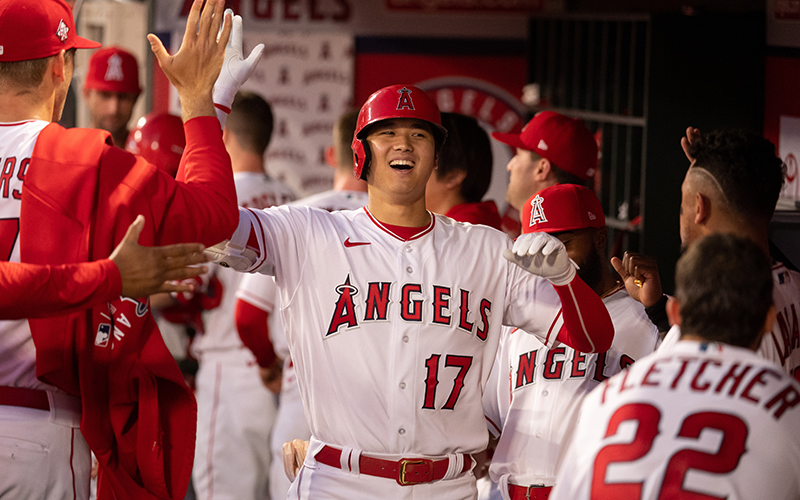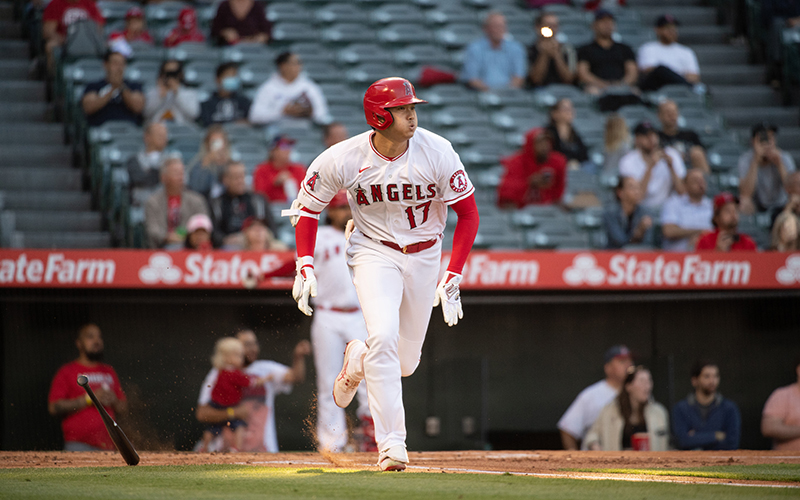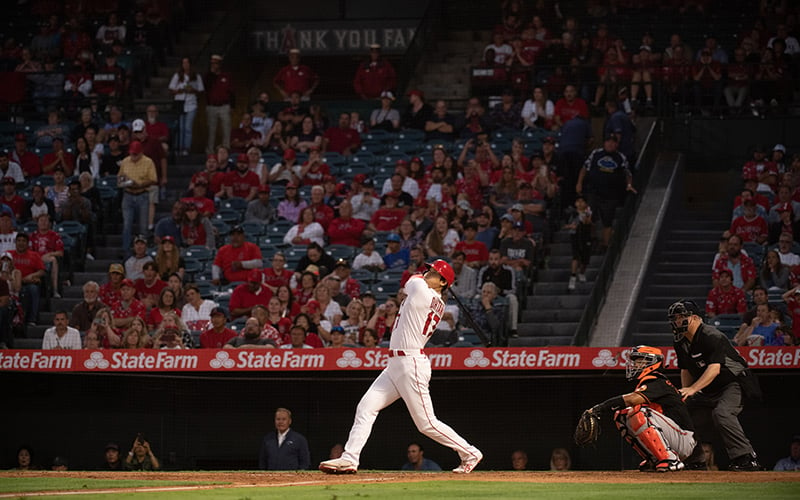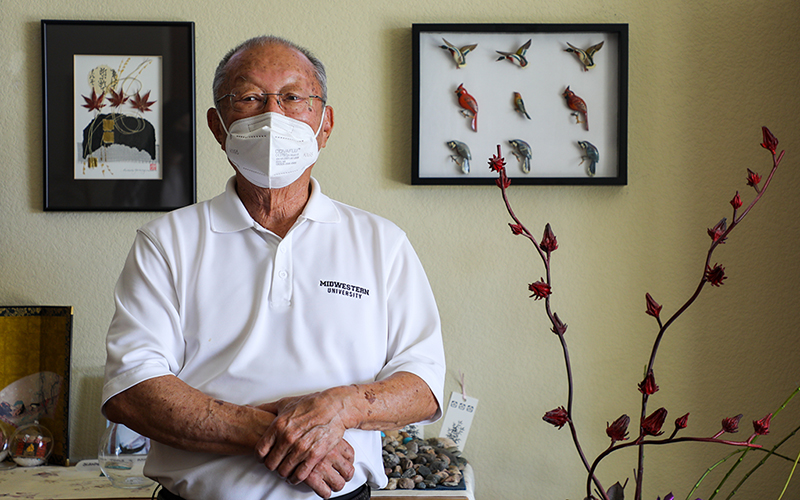LOS ANGELES – In his fourth season with the Los Angeles Angels, Shohei Ohtani is paving his own path and making history while doing so.
Ohtani, 27, was selected to his first All-Star game as both hitter and pitcher – a first in league history. He was the starting pitcher and leadoff hitter for the American League on July 13, where he went 0-2 at the plate and pitched one perfect inning, earning himself the win.
Asked the day before why he chose Ohtani to start, Kevin Cash, manager of the Tampa Bay Rays and this year’s AL skipper, replied, “I think we would all respect what he has done and meant to our game this year. This is what the fans want to see, it’s personally what I want to see, and to have the opportunity to do something that’s a generational talent is pretty special.”
Ohtani’s historic All-Star weekend also included an appearance in the Home Run Derby, which he entered as the favorite. But he was eliminated in a thrilling double-overtime swing-off in the first round against the Nationals’ Juan Soto.
“It was a great experience, I got to meet a lot of new people, got to hear a lot of different stories, so it was good,” Ohtani said after the derby on July 12.
His dual threat hasn’t been seen in Major League Baseball since Babe Ruth’s heyday more than a century ago.
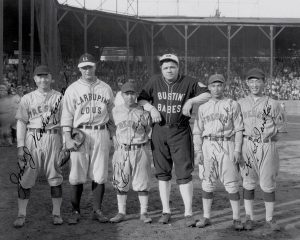
Babe Ruth and Lou Gehrig pose with some of the Nisei Baseball League All-Stars on October 29, 1927. From left: Johnny Nakagawa, Lou Gehrig, Kenichi Zenimura, Babe Ruth, Fred Yoshikawa, Harvey Iwata. (Photo credited to Frank Kamiyama and courtesy of the Nisei Baseball Research Project)
Ohtani – who leads the league in home runs with 35, is tied for third in RBI’s with 75 and is 4-1 on the mound with a 3.21 ERA – continues to draw comparisons to Ruth in the 1919 season, when he had 29 home-runs and nine wins with a 2.97 ERA.
“He’s a legendary figure. It’s a huge honor to be compared to somebody like that,” Ohtani said.
Ohtani was born in Oshu, Japan, played high school baseball in Iwate Prefecture and professionally in Hokkaido.
In Japan, he won the Pacific League Pitcher Best Nine in 2015 and 2016, while also winning the Designated Hitter Best Nine in 2016. He’s the only player to win both the pitcher and hitter award.
This was no easy task because, as many baseball fans know, the Japan professional baseball leagues are among the best in the world.
“In Japan, they consider it their pastime as much as we consider it our American pastime,” said Kerry Yo Nakagawa, founder of the Nisei Baseball research project and author of “Through a Diamond: 100 Years of Japanese American Baseball.”
Nakagawa credited English teacher Horace Wilson, an American expatriate, for introducing baseball to Japan in 1872, and “it caught on like wildfire.”
This love continued for many Japanese immigrants and Japanese-Americans in the U.S when they started their own league which was called the Nisei Baseball League. Nisei is a Japanese word for second-generation Japanese Americans.
Baseball was the perfect sport for Japanese culture, he said, because it shares similar values, such as teamwork, knowing your role and putting your family and team ahead of yourself. It also allowed for a unique opportunity that wasn’t part of other physical disciplines in Japan at the time.
“In Japan, it was really disciplines that were all kind of singular, there was karate, there was kendo and sumo,” Nakagawa said. “But here was a sport that was introducing nine players to play with one mind. … So I think they gravitated to it because it was the first team concept of a sport.”
This has resulted in Japan producing many great major leaguers, including former MVP and Seattle Mariner Ichiro Suzuki, former New York Yankee and 2009 World Series MVP Hideki Matsui and former Red Sox pitcher and 2007 World Series champion Daisuke Matsuzaka.
Shohei Ohtani, however, may end up being the biggest name of them all.
In his last outing on the mound, July 19 against the Athletics, Ohtani pitched six shutout innings with eight strikeouts, while only allowing three hits. (The Angels went on to lose 4-1).
His next pitching start is scheduled for Monday against the Colorado Rockies. The Angels, who are 49-49 and hoping to make a playoff push in the final months of the season, will need him.

